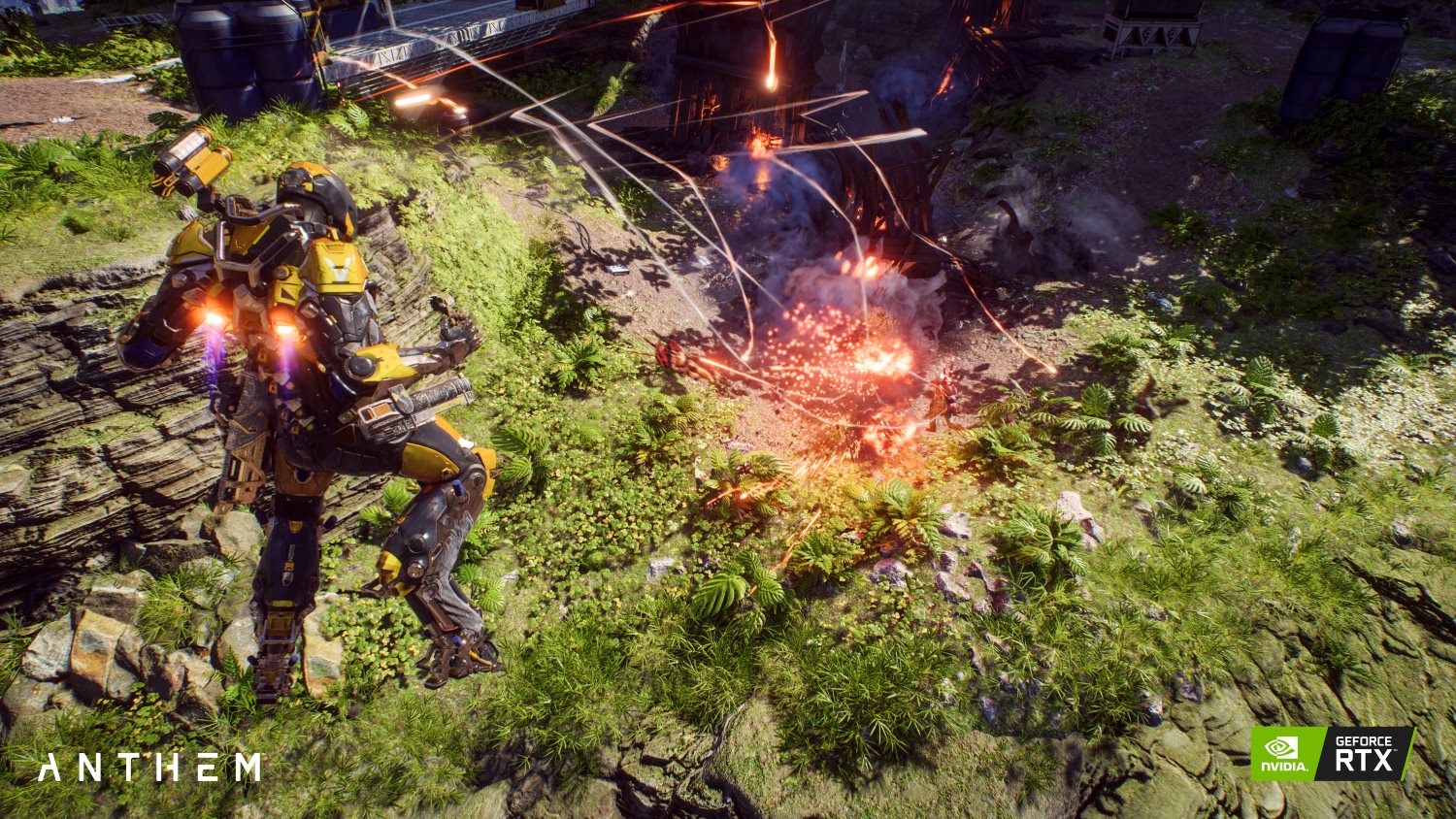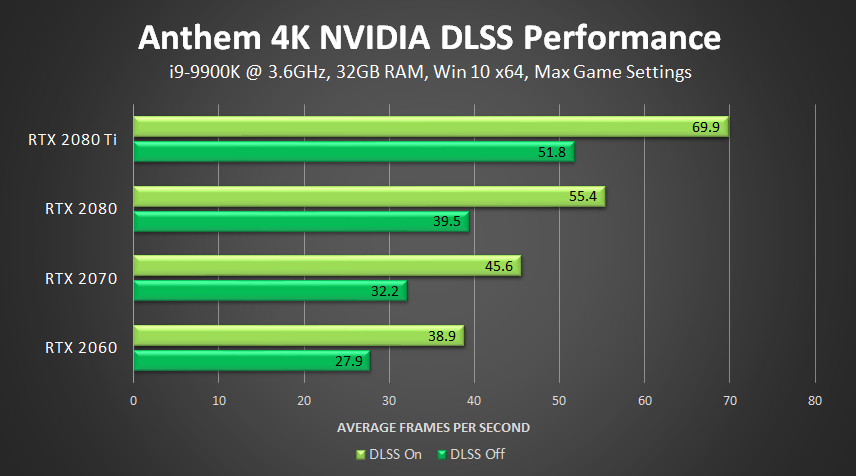Anthem Adds DLSS: Nvidia Claims Up to 70 FPS at 4K
The much-anticipated game Anthem came out in late February and was met with mixed reactions from gamers and reviewers. Back when Nvidia RTX was released, Anthem was on the list of titles that were set to support their new DLSS artificial intelligence technology. And though support did not come out on day one, yesterday’s patch, 1.0.4, has enabled this feature, plus Nvidia Highlights to assist the streamers.
Nvidia said enabling DLSS will show up to 40 percent performance gains with real-time ray tracing enabled. As with other titles, DLSS is limited to specific resolutions and cards. At 4K resolution, all RTX-based GPUs will work. At 2560x1440, all except the Nvidia GeForce RTX 2080 Ti graphics card will run DLSS.
Nvidia released a video showing the differences in performance with DLSS enabled and disabled (below). We can also glean some idea of how it looks from the video, but we’ll need to wait and see some side by side stills to compare properly, as well as independent benchmarks on performance. But from the looks of it, the DLSS implementation appears to be one of the better ones we have seen for games.
Nvidia Highlights
Nvidia Highlights support has also arrived for those who use the GeForce Experience software, which allows the automatic capturing of gameplay and screenshots in specific situations. This applies to the following scenarios, according to BioWare/EA:
- Visiting and viewing overlooks
- Defeating certain large creatures
- Performing multi-kills
- Defeating legendary creatures
- Discovering the tomb of the Legionnaires
- Performing combos
- When the player is downed by enemies
- Defeating bosses
Full patch release notes are available at EA'a Anthem page, while even more detailed information from Nvidia covering the GeForce features for Anthem are posted at the Nvidia website.
Get Tom's Hardware's best news and in-depth reviews, straight to your inbox.

Joe Shields is a staff writer at Tom’s Hardware. He reviews motherboards and PC components.


